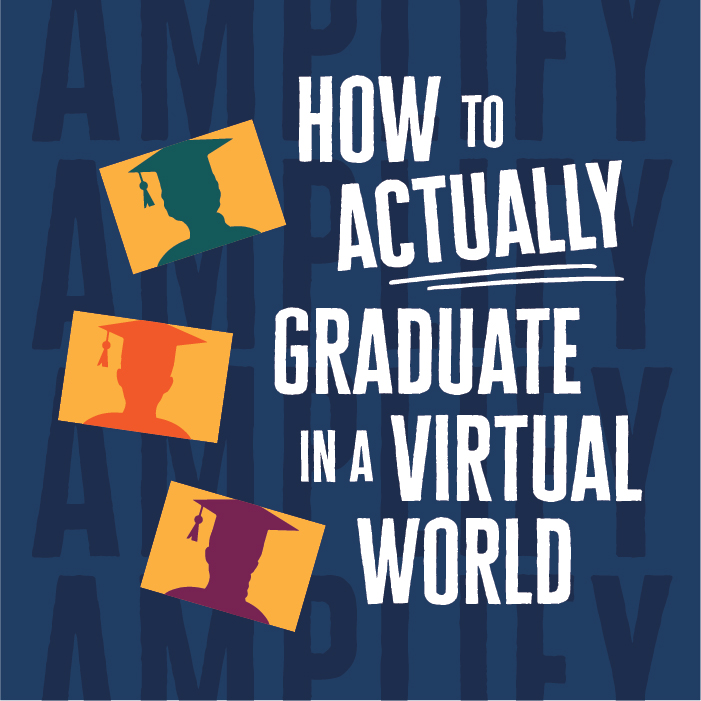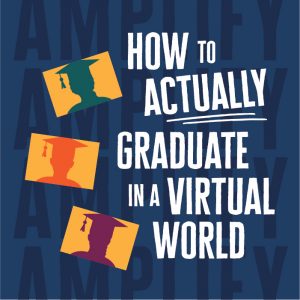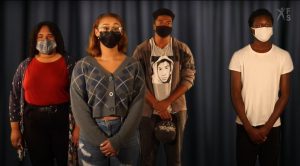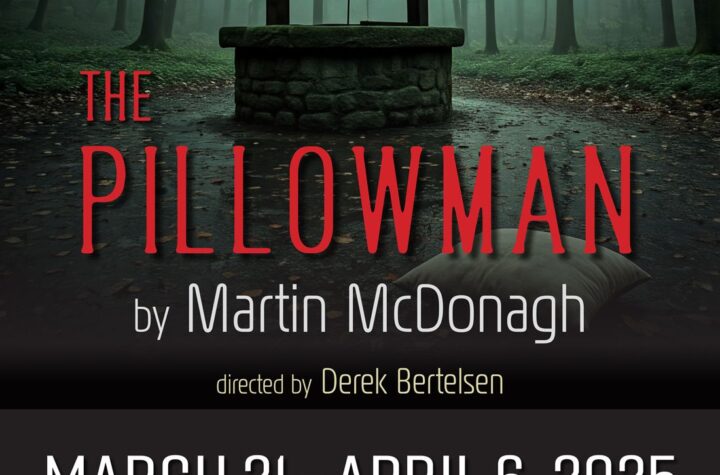
 Recommended *** “How to Actually Graduate in a Virtual World” fleshes out how five black teenagers come to grips with how best to celebrate their high school graduation, considering that their ceremony that has to take place virtually due to COVID-19 restrictions. In part a coming-of-age story, these teens seek some sense of normalcy during the pandemic while, at the same time, they strive for meaning in a world turned on its head. Although the story by Nikkole Salter is self-indulgent in spots, it asks a lot of good questions, one of which has to do with the role of pomp and circumstance when receiving a high school diploma. Since their graduation ceremony will have no live audience to sing their praises, the teens discuss among themselves whether their accomplishments somehow seem less real or important. And, if so, what can they do to make up for this?
Recommended *** “How to Actually Graduate in a Virtual World” fleshes out how five black teenagers come to grips with how best to celebrate their high school graduation, considering that their ceremony that has to take place virtually due to COVID-19 restrictions. In part a coming-of-age story, these teens seek some sense of normalcy during the pandemic while, at the same time, they strive for meaning in a world turned on its head. Although the story by Nikkole Salter is self-indulgent in spots, it asks a lot of good questions, one of which has to do with the role of pomp and circumstance when receiving a high school diploma. Since their graduation ceremony will have no live audience to sing their praises, the teens discuss among themselves whether their accomplishments somehow seem less real or important. And, if so, what can they do to make up for this?
Another major aspect of the story has to do with being black in Milwaukee and the fact that the media constantly portrays the north side of the city as being horribly violent, with its shootings and stolies (stolen cars). According to the script, “All you hear about on TV… [is that Milwaukee is] the worst place for black people to live in the nation.” Considering this negative stereotype, these five teens want to prove that they account for something positive, and it becomes doubly important for them to demonstrate to the world that their graduation matters. If there is any disagreement among them, it is about how best to show that they are “good kids.” Thus the characters flaunt their accomplishments in keeping with their personal strengths. There are students who excel academically, like the valedictorian/narrator TT (Maya O’Day Biddle); those who excel in sports, like Kenya (Christian Hughes); students with musical talent, as embodied by Raynell (Nahjee Robinson); and those who show creativity in photography, videography, and art, as represented by Shannon (Abby Wallace); and finally, students who focus on understanding the philosophical underpinnings of existence, such as Jordan (Jonae Thomas). As each student embodies a different aspect of what success means, their collective example reveals that our definition of success is not monolithic. It is by combining all five types that the group creates an innovative expression of what it means to graduate from high school in the year 2020.
The video is nicely directed by Samantha Montgomery through the skillful use of Zoom boxes from remote locations. Filming and editing were done by Traveling Lemur Productions. Location audio capture and engineer Jacob Mitchell and technical director Emily Adams did a practically seamless job of integrating the different scenes together. Audio is fine; video effects are good without going overboard. There is a nice balance between the joyful, sad, and cerebral aspects of the show. Three songs by Milwaukee musician WebsterX and the song “Wats Hannen” by CNS provide the appropriate musical backdrop.
Students and their families have traditionally looked forward to high school graduation as an important rite of passage that symbolizes personal growth and future potential. But in lieu of an actual commencement ceremony and the communal praise that comes along with it, what can—or should—be done to make young people feel good about themselves and their future? Is it even possible to have a happy celebration online in view of sadness everywhere, with so many people getting sick or dying from the virus? The irony of this show is that it’s a virtual performance about a virtual event .
Whether these and other graduates will look back upon their remote ceremonies as being an ill-fated blip or as something far more meaningful, there is no doubt that 2020 was an unusual and different year for everybody. Regardless of our age, race, ethnicity, or background, the era of COVID has become a time in our lives to retreat and reflect on just how much we are intertwined with our culture and our community and evaluate which aspects of our lives we may or may not find meaningful. And regardless of the extent to which we may have withdrawn from the world, it is still a part of us, and we are still a part of it.
“How to Actually Graduate in a Virtual World” is the first in this year’s series of productions in the Amplify — First Stage’s BIPOC Short Play Series. It is available for video streaming through December 5, 2021.
The show is FREE to view.
Here is the direct YouTube link to the video stream: https://www.youtube.com/watch?v=kJTSDnxCROA






More Stories
“The Pillowman” reviewed by Frank Meccia
“Kitty James and Destiny’s Trail To Oregon” reviewed by Julia W. Rath
“La Boheme” reviewed by Jacob Davis